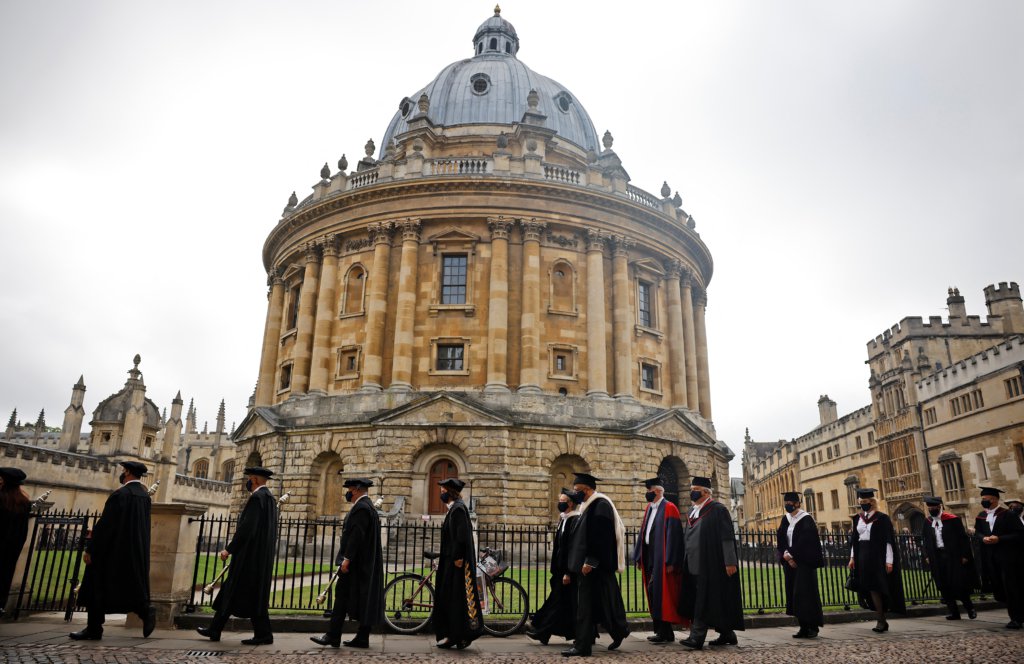
Many international students dream of studying and living in the UK, and it’s no wonder why.
The UK is home to striking architecture, a unique blend of history, impeccable cuisine, boisterous football culture and ear-catching pop music.
Know what else is popular in the UK? Its universities. The UK is one of the most popular study abroad destinations and hosts a large international student population. Among them are students from India.
According to the Higher Education Statistics Agency (HESA), there were 605, 130 international students registered at various UK universities and higher education institutions for the 2020-21 academic year. They note that Indians comprised one of the largest international student groups, with 53,015 students registered in the 2020-21 academic year.
If you are a student from India who plans on studying and working part-time in the UK, here is a definitive guide to living in the UK that you can refer to before making your big move. Let’s get started:
Living in the UK: What Indian students should know
Academic reputation
The UK is a bastion of higher education.
Think Oxbridge (a portmanteau of Oxford and Cambridge), two top-ranking institutions based in the UK that boasts of famous alumni, including education advocate Malala Yousafzai, former Myanmar State Counsellor Aung San Suu Kyi and English broadcaster Sir David Attenborough.
Many UK universities are also listed in the QS World University Rankings 2022.
It’s excellence in academia is marked by its world-class academicians and learning facilities, which aim to bring out the best in students.

The University of Oxford is one of the most prestigious institutions in the world, and epitomises the finest quality of a British education. Source: Tolga Akmen/AFP
Tuition fees
Many international students choose to study in the UK for many reasons.
This includes its shorter undergraduate course (bachelor’s in the UK typically takes three years to complete, compared to four in the US), which makes it generally cheaper than studying in the US.
UCAS notes that the average cost per year of study in the UK for international students is around an average of 11,000 British pounds per year in tuition fees, but some fees can be £8,000 to £9,000 a year or up to £30,000 a year.
How much you can expect to pay varies depending on the institution, the course level, and the type of course. Be mindful that tuition costs may increase adjusting to the local inflation rate.
You can check out this online tool by UCAS to get an estimate as well as for other course-related information.
The UK also offers a variety of scholarships, including the highly coveted Chevening Scholarship and GREAT Scholarships.
There are other financing options, including bursary schemes, student loans and grants. Check with your university advisor about the available student financing options for students from India.
English language proficiency
The UK announces a 2-year post-study visa for all international students graduating in 2021. Most UK universities accept an IELTS score. Take IELTS with British Council and get Free access to the Road to IELTS Last Minute Preparation course.https://t.co/cCeo0bVGO1 pic.twitter.com/aruS3NbHpt
— Take IELTS Official (@takeielts) October 9, 2019
While some universities may make an exception, many universities in the UK require that international students submit proof of their English language proficiency for acceptance into a programme.
Two popular English language proficiency tests that UK institutions accept include the International English Language Testing System (IELTS) and Test of English as a Foreign Language (TOEFL).
There are two IELTS tests: namely for academic or general training purposes. International students should take the IELTS academic version. It assesses their English language skills in listening, reading, writing and speaking.
Alternatively, enrolling in a pre-sessional English course in the UK can help Indian students who have yet to meet the English language requirements of UK universities to brush up on their English language proficiency.
Housing options
Any international student should sort out their accommodation before moving to the UK. There are many things to factor in when looking for the right place.
Naturally, the cost of student housing will vary depending on whether a student chooses to live on or off-campus, housing type, nearby amenities, city and county.
In cosmopolitan cities such as London, student accommodation can be costly, considering that it is an important financial centre in the world. According to the latest rental figures published by SpareRoom, the average room is priced at £796 a month, and the COVID-19 pandemic is not showing any signs of slowing down the rent inflation, as this figure rose from the average rent of £703 in March of last year.
View the average rent in the UK here.
For first-timers to the UK, international students are encouraged to stay in university-managed student accommodation. For a cheaper option, students can check out local Facebook groups or student housing within the proximity of their city or educational institution. Cheaper accommodation may have shortcomings, such as being partially furnished or unfurnished. This means that students might have to fork out more on furniture and essential everyday items.

One of the most important factors to look out for before moving to the UK for study and work purposes is to sort out accommodation matters. Source: Tolga Akmen/AFP
Living costs
Living in the UK can be costly, making it essential for students to be financially savvy.
According to the Student Living Index published by Natwest in 2021, here are the five affordable student cities in the UK:
- Sheffield
- Cambridge
- Glasgow
- Oxford
- Birmingham
And the five least affordable student cities in the UK:
- London
- Leeds
- Bristol
- York
- Liverpool
Working while studying
Only students enrolled in full-time degree courses are eligible for employment; students applying for further education colleges on a short-term visa may not work while studying.
International students in the UK who are above the age of 16 may work up to 20 hours a week during the term. Students can work longer hours during vacation. Besides that, you may also work as a postgraduate doctor or dentist if you are enrolled in a recognised foundation programme; this is considered a trainee position.
Get more details about working in the UK here.

With a UK student visa, students are entitled to work part-time for up to 20 hours per week. They may also opt to work full-time during the holiday period. Source: Scott Olson/AFP
Study permit
According to the UK government website, you may apply for a UK student visa if you:
- have been a offered a place on a course by a licensed student sponsor
- can fund your educational pursuits in the UK (the amount will vary depending on your circumstances)
- can speak, read, write and understand English
- obtain informed consent from your parents if you are between the 16 or 17 years old
Applying for a UK visa can begin as early as six months before your intended course start date; a decision will be made in approximately three weeks.
It will cost £363 (IN₹36,061 at the time of writing) to apply for a Student visa from outside the UK. While inside the UK, it will set you back around £490 (IN₹48,679) to extend or switch to a Student visa from inside the UK.
Other relevant information about the Student visa can be viewed here.
Tourist attractions
The UK is home to some of the most beautiful landmarks and cultural sites.
Whether you’re based in London or Birmingham, there are plenty of things to see and do, and some of them for free too.
For instance, in London, some must-see attractions include Big Ben, the London Eye, London Transport Museum, Madame Tussauds and The View from the Shard.
The UK is also home to 33 UNESCO heritage sites, as well as the Stonehenge, which is considered the most architecturally sophisticated and only surviving lintelled stone circle in the world.
Ultimately, students are spoilt for choice with the number of attractions they can explore.

In the UK, international students have access to the NHS for a yearly fee amounting to £470. Source: Justin Tallis/AFP
Access to healthcare
International students have the privilege of being treated under the National Health Service (NHS) while studying in the UK. However, they are not entitled to free healthcare like their British-born or European Economic Area (EEA) counterparts.
International students in the UK are required to pay £470 a month for one year of health insurance coverage. This is called an Immigration Health Surcharge (IHS), which is required to be paid alongside the visa fee when you apply for a Student visa.
You can use this calculator to determine how much you have to pay for the Immigration Health Surcharge.










